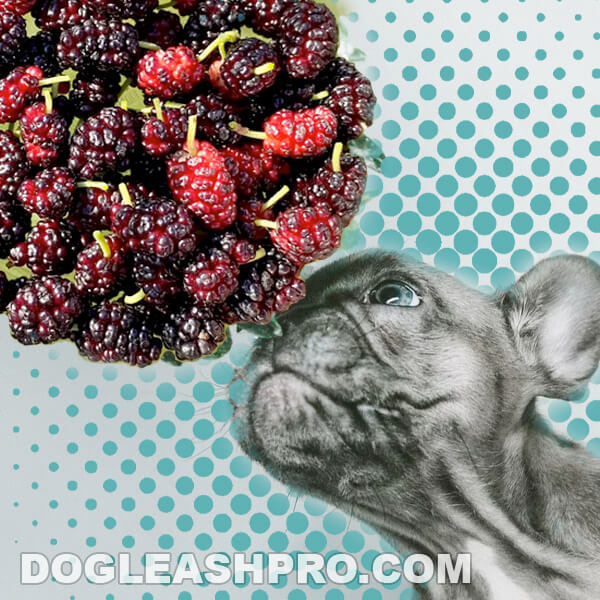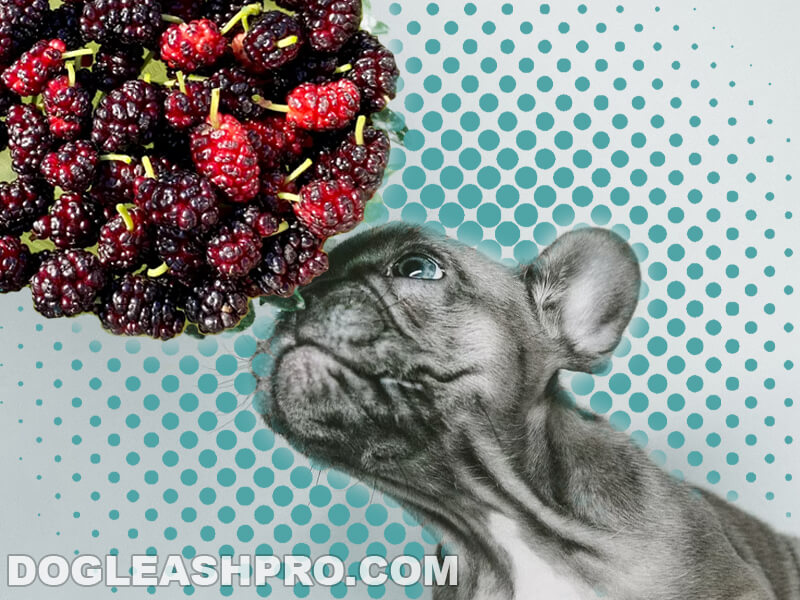
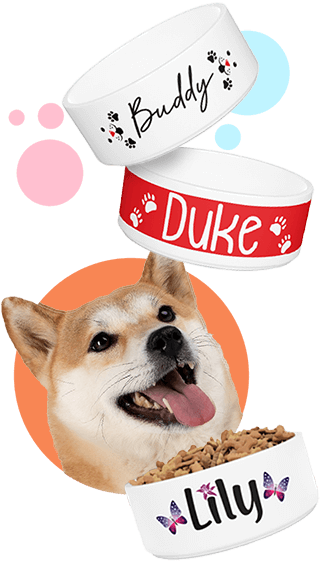
You’re probably enjoying some Mulberries right now and your dogs are sitting close by begging you for some. Whether you’re enjoying these nutritious berries or using them in holistic medicine, you’re probably wondering if Mulberries are safe for doggy consumption. We’ll discuss everything you need to know about Mulberries and dogs, but here is the short answer first.
Can dogs eat Mulberries? Yes, dogs can eat Mulberries in moderation. Mulberries come in white, red, and black colors and they are not toxic to dogs when they’re ripe. Be mindful to only give your dog Mulberries as an occasional treat. Mulberries are packed full of vitamins and minerals but eating too many can cause upset stomachs in dogs.
Table of Contents
Can dogs have Mulberries?
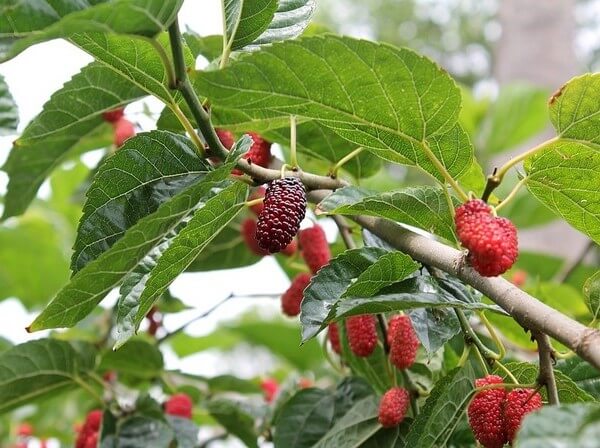
Yes, dogs can have Mulberries in moderation. If you would like to give your pooch some Mulberries, be sure the Mulberries are fresh and ripe. To fully understand why dogs can have Mulberries, let’s take a closer look at this fruit.
What are Mulberries?
Mulberries are often confused with blackberries. However, Mulberries have an almost oval shape and they look like elongated blackberries.
You can find Mulberries in most parts of the US and they grow on deciduous trees. Since Mulberries are pretty delicate, they aren’t able to endure long journeys without being damaged or ruined.
This is why many farmers prefer to make jam or syrup out of this fruit instead of eating them fresh.
There are four main types of Mulberries:
- White Mulberries: Was brought to the US to feed silkworms.
- Dark red or American Mulberries: Grows mostly in the eastern part of the US.
- Black Mulberries: Can cause wine-colored stains on your fingers when you touch them and on the sidewalk when you step on them.
- Deep purple
The ripe fresh White Mulberries tend to taste sweet while the darker Mulberries have a balance of tart and sweet taste. Sometimes you can taste a hint of woody cedar and baking spices.
When it comes to dried Mulberries, they don’t have as much water as the fresh Mulberries so the sugar and juice are more concentrated in the dried form.
Are Mulberries safe for dogs?
Yes, Mulberries are safe for dogs to eat as they are not toxic to dogs. In fact, fresh Mulberries are loaded with nutrients that are beneficial to dogs. This natural fruit is made up of mostly water. In fact, fresh ripe Mulberries contain 80% water.
In one cup of Mulberries, we get the following nutritional profile:
- 80% water.
- 9.8% carbohydrates.
- 1.7% fiber.
- 1.4% protein.
- 0.4% fat.
Health benefits Mulberries provide to dogs
A moderate amount of fresh ripe Mulberries will contain nutrients that are beneficial to our canine friends.
Let’s take a look at the nutritional profile of 10 Mulberries:
Nutritional Profile of Mulberries (10 fruit or 15 grams)
| Name, Unit | Amount |
| Calories, cal | 6 |
| Sodium, mg | 2 |
| Total Carbohydrate, g | 1.5 |
| Dietary Fiber, g | 0.3 |
| Sugar, g | 1.2 |
| Total Fat, g | 0.1 |
| Potassium, mg | 29 |
| Protein, g | 0.2 |
Mulberries also contain calcium, cobalamin, iron, magnesium as well as vitamins B6, C, and D.
Here are just a few health benefits Mulberries provide to our furry pals.
Antioxidants in Mulberries help fight harmful free radicals in dogs
Like humans, our four-legged friends also need antioxidants in their daily diet. Vitamin C in Mulberries provides antioxidants that help fight against harmful free radicals.
Harmful free radicals can cause aging in dogs as well as cancer and damage to the dog’s organs and body functions.
Mulberries also contain Resveratrol, a powerful antioxidant that helps fight infection and build a strong immune system in dogs. Many studies suggest that this polyphenol may help with the following:
- Increase a dog’s lifespan.
- Prevent cancer and slow down cancer cell growth.
- Lower cholesterol.
- Prevent high blood pressure.
- Promote neurological health.
Both of these antioxidants help to neutralize the harmful free radicals in your dog’s body and help to prevent aging while also improving your dog’s endurance.
Fun Fact: Cilantro is an annual herb that is also packed full of antioxidants. But are they safe for doggy consumption? Check out Can Dogs Eat Cilantro? to find out!
Fiber in Mulberries promotes a healthy digestive system in dogs
When you give your pooch a small amount of Mulberries, they may benefit from easy digestion and bowel movement.
That’s because Mulberries are packed full of soluble and insoluble fibers. These two types of fiber are great for dogs experiencing digestive issues such as constipation.
Be careful not to feed your canine friends too many Mulberries because too much fiber intake can cause them to have upset stomachs.
Iron in Mulberries increases red blood cell production in dogs
Mulberries are also packed full of iron which helps to increase the production of red blood cells in dogs. Red blood cells are vital to carrying oxygen throughout the dog’s body so that your pooch can have healthy cells and strong muscles.
Iron also helps certain enzymes in the dog’s body to function properly.
Calcium and vitamin K in Mulberries builds strong bones in dogs
This wonderful fruit is also packed full of calcium, magnesium, and vitamin K. These vitamin and minerals help to build strong healthy bones in dogs.
If your pooch is hurt or has a broken bone, having enough calcium, vitamin K, and magnesium can help to accelerate your dog’s recovery and build a strong skeletal structure.
Calcium also helps to maintain a healthy brain in dogs. This mineral keeps the dog’s brain alert and young and repairs brain cells. Your four-legged friends will learn quickly and excel in their training.
Anthocyanins in Mulberries helps fight cancer in dogs
Mulberries also contain a type of flavonoid called Anthocyanins which has antioxidant effects. This type of flavonoid can help prevent the formation of gastrointestinal tumors in dogs.
There are three common types of intestinal tumors in dogs. They are intestinal lymphoma, adenocarcinoma, and leiomyosarcoma. Fortunately, these types of cancer are not common in dogs. But it never hurts to eat a few Mulberries.
Are Mulberries bad for dogs?
Mulberries are not bad for dogs when consumed in moderation. Since Mulberries are packed full of fiber, eating too much of this fruit can actually cause upset stomachs in dogs.
Eating too much of anything is bad, which is why moderation is key.
If you’re introducing Mulberries to your canine pals or this is the first time they are having it, be sure to introduce this fruit by cutting one of the Mulberries into small pieces and giving them a small piece.
When you’re introducing your pooch to a new food, always start small and slow. Observe your pup and check for any allergic reaction. If your pooch is sensitive to Mulberries or is showing reactions to the fruit, do not feed them anymore Mulberries.
Contact your vet as soon as you can and ask if there’s anything you can do to help your pooch with this allergic reaction.
Are Mulberries poisonous to dogs?
No, Mulberries are not poisonous or toxic to dogs. If you’re wondering, “are Mulberry trees poisonous to dogs?” or “are Mulberry leaves poisonous to dogs?” the answer is no. Mulberries, Mulberry leaves, and Mulberry trees are all non-toxic to dogs.
So, can dogs eat Mulberry leaves?
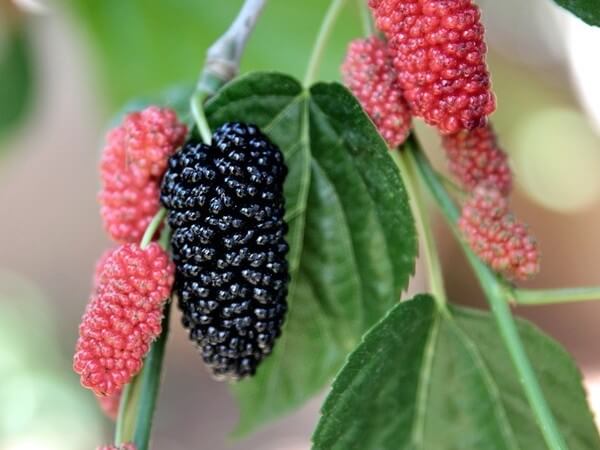
Yes, dogs can eat Mulberry leaves. If your dogs accidentally ate a few Mulberry leaves, they should be fine as the Mulberry leaves are not toxic to dogs.
However, make sure your K9 pals do not eat too much Mulberry leaves or they risk having indigestion problems such as diarrhea.
Are Mulberries ok for dogs to eat?
As we can see, Mulberries are ok for dogs to eat as long as your pooch eats this fruit in moderation.
Let’s take a look at how much Mulberries to give your dog and how to properly serve Mulberries to your pooch.
If you would like to feed your canine friends some Mulberries, the best way to serve this fruit to them is fresh ripe Mulberries. You can give your four-legged friends about 3 to 4 Mulberries if this is their first time having this fruit.
Avoid baking the Mulberries into doggy treats. Baking Mulberries may have you adding too many Mulberries into the treats and this can cause upset stomach in dogs.
Additionally, when you bake the Mulberries, it breaks down some of that wonderful compounds, such as essential vitamins and minerals, that are good for your dogs.
Simply give your pooch about 3 to 4 Mulberries as an occasional treat once a week. Observe for any reactions or behavioral changes after you’ve given them some of this fruit. This will let you know whether you’re feeding them too many Mulberries or feeding them Mulberries too frequently.
Can dogs eat dried Mulberries?
Although dried Mulberries are not toxic or poisonous to our canine friends, it’s not wise to give our pooch dried Mulberries.
That’s because dried Mulberries do not contain the water content that is in fresh Mulberries and after the water has evaporated from this fruit, the sugar and juice are more concentrated. Dried Mulberries are also high in calories.
The combination of high sugar and calories is bad for your dog’s health. Consuming too much sugar and calories can put your pooch at risk for diabetes, obesity, heart disease, and even pancreatitis.
So, can dogs eat Mulberries?
Mulberries, like other fruits, are safe for dogs to eat in moderation. This sweet-tart fruit provides many health benefits to your furry friends. But be careful not to give your pooch Mulberries every day. Once a week or as an occasional treat is fine.
Make sure to observe your canine friends for any negative reactions after feeding them Mulberries. If they do have allergic reactions to this fruit, don’t feed them anymore Mulberries, and contact your vet as soon as you can.
DISCLAIMER: THIS WEBSITE DOES NOT PROVIDE MEDICAL ADVICE
The information, including but not limited to, text, graphics, images and other material contained on this website are for informational purposes only. No material on this site is intended to be a substitute for professional veterinary advice, diagnosis, or treatment. Always seek the advice of your veterinarian or other qualified health care provider with any questions you may have regarding dietary needs.
Resources:
https://en.wikipedia.org/wiki/Morus_(plant)

With over five years of specialized experience as an animal writer, my expertise lies in dog nutrition, health, behavior, grooming, and training. I am dedicated to delivering helpful and informative content that caters to the well-being of our furry friends. My primary goal is to empower pet owners with knowledge and ensure our canine companions thrive in health and happiness. In my free time, I love volunteering at local dog rescue centers.
